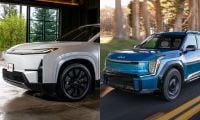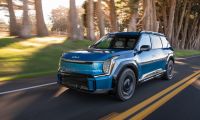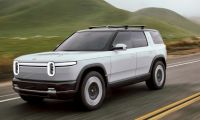Here at Torque News, we have contributors who are strong advocates for EVs. We also have contributors who cover the topic closely but are guardedly optimistic about EVs (me) and we have a few who don't offer much opinion on the subject. That makes us unusual. Many publications are either strongly pro-EV or simply report news when they have nothing else to work on that day.
Forecasting EVs deliveries in the U.S. market is tricky. For one thing, automakers won't tell us what they plan to produce. That makes fact-finding difficult, but not impossible. Working backward from the production plants' capabilities is helpful. However, even that has its risks. Two years ago, I predicted the Tesla sales volume as accurately as anyone in the business. However this year, I'm way high on my Tesla delivery predictions for the U.S. That is because I made them before Tesla opted to allocate substantial inventory to Europe and other markets. It turns out that many automakers are planning to do the same thing in 2020.

Kia On the Record - EV Deliveries In The U.S.
Kia recently went on the record with Torque News and explained why one of our favorite cars, the Niro EV, is only selling at a rate of a hundred per month. It turns out, Kia is sending its limited EV inventory to Europe. You can read more about that here.

Mercedes-Benz - One Year Delay On Key EV In the U.S.
Other automakers are planning this same thing. In addition to Tesla and Kia, Mercedes-Benz will not just reduce its EV allocations to the U.S. it will delay its new EQC by a full year to send inventory to Europe. Autonews reports the reason has to do with meeting EU complaince requirements.
With three key players in EV development shifting inventory to Europe, the coming year could be soft for EV sales and deliveries in the U.S. market.
John Goreham is a life-long car nut and recovering engineer. John's focus areas are technology, safety, and green vehicles. In the 1990s, he was part of a team that built a solar-electric vehicle from scratch. His was the role of battery thermal control designer. For 20 years he applied his engineering and sales talents in the high tech world and published numerous articles in technical journals such as Chemical Processing Magazine. In 2008 he retired from that career and dedicated himself to chasing his dream of being an auto writer. In addition to Torque News, John's work has appeared in print in dozens of American newspapers and he provides reviews to many vehicle shopping sites. You can follow John on Twitter, and connect with him at Linkedin.
Set as google preferred source












Comments
I agree that the 1st quarter
Permalink
I agree that the 1st quarter of 2020 will see somewhat soft EV sales. But I do not see that primarily due to priority deliveries to Europe. I see it because the current administration has not supported any efforts to reduce smog and increase gas mileage. So they have created an opportunity for automakers to delay or stop the progress on economy cars and EVs for another year. Even though you included Tesla in your examples of EVs going to Europe affecting US EV sales, I believe that was a one-year occurrence. That was related to Tesla's global production being limited overall. But Dec. 9, it was reported that Tesla's Chinese Gigafactory was already up and producing 1,000 cars a week. And production is expected to rise to 3,000 a week (150,000 a year) next month. I expect that beyond the local Chinese EV market, they will be building Teslas for Europe as well. And Gigafactory 1 in Nevada will still produce enough batteries for the increased demand of the Model Y, so they won't face the battery shortage issues that Hyundai/Kia is facing. Speaking of the Model Y, it has been rumored that it will be in showrooms earlier than the original Q1 2021 plan, and I am hoping for mid-2020. Which will provide a flood of new EVs in the U.S. I think that this upcoming surge in EV sales will push Ford, VW, and GM to accelerate their own competing EV model production plans to come out in 2020, rather than the currently slipping plans edging towards 2021.